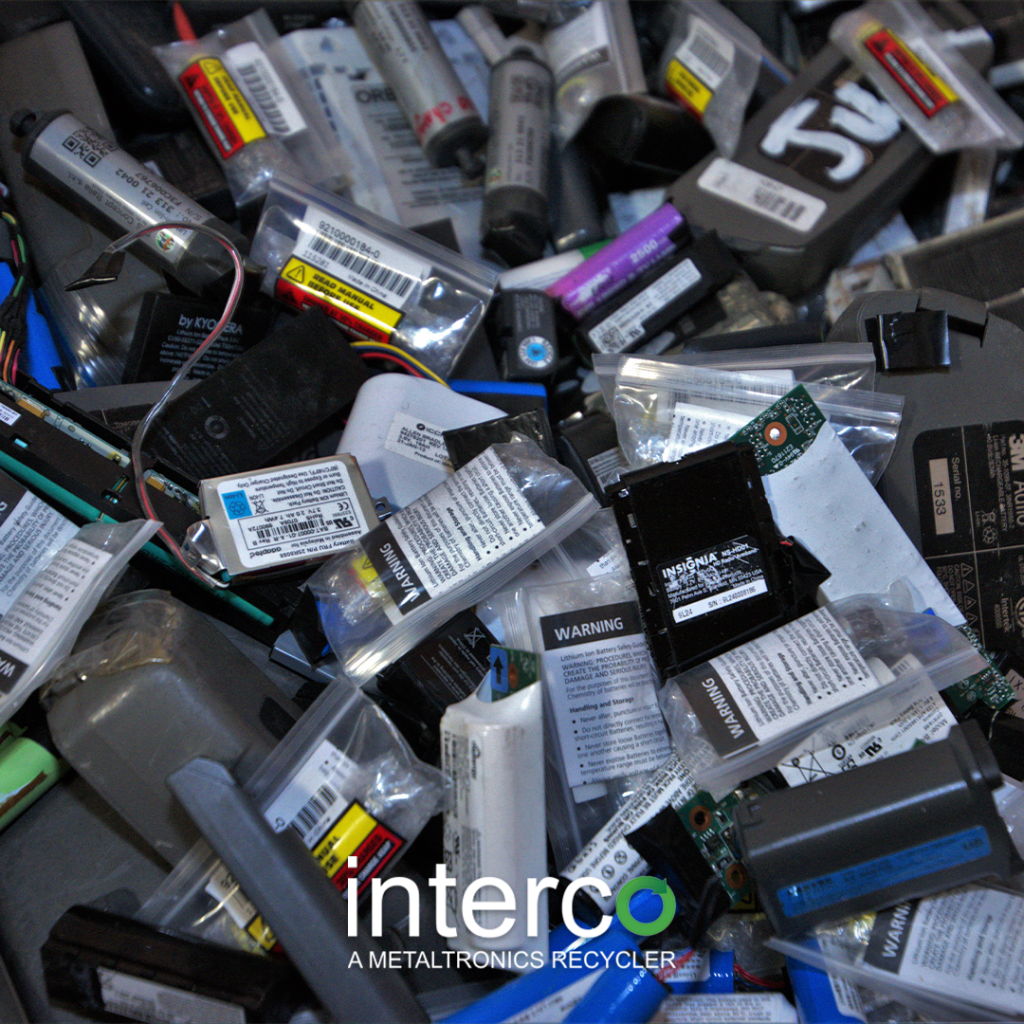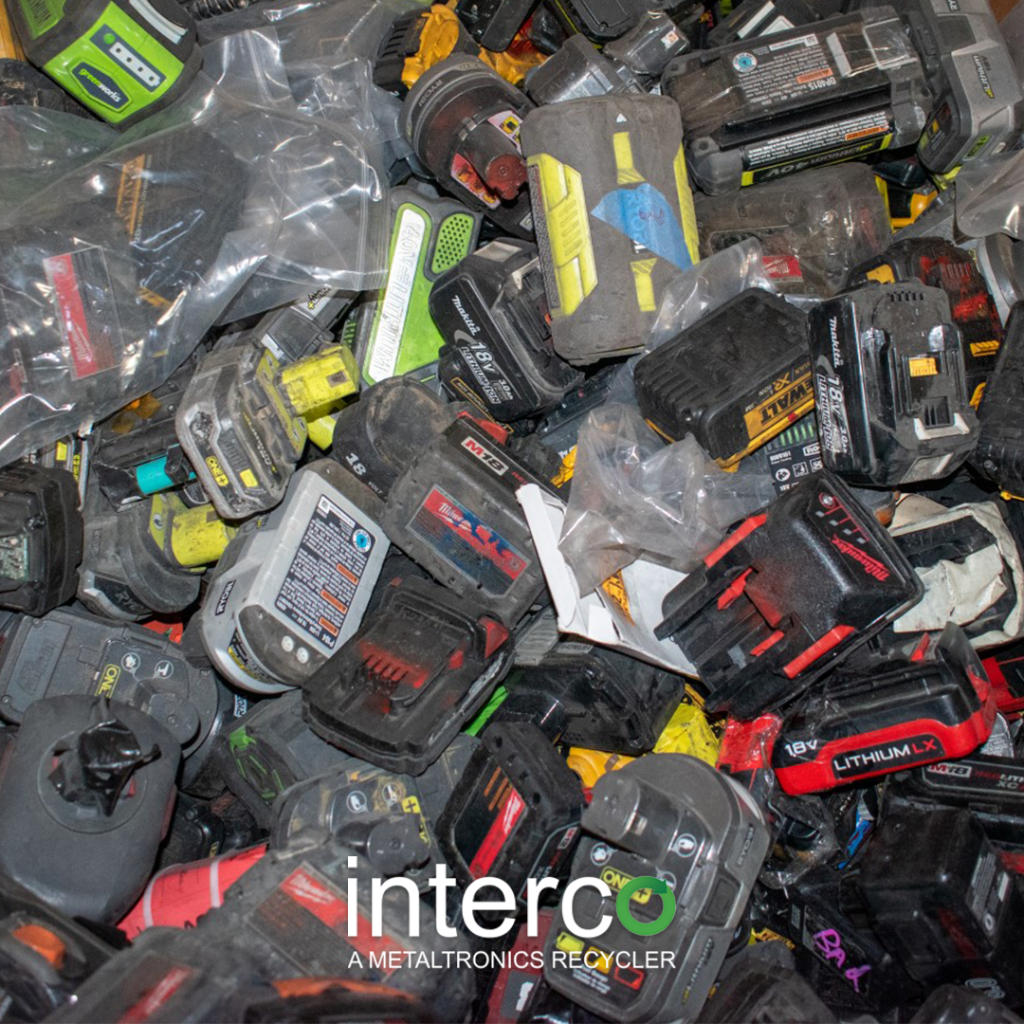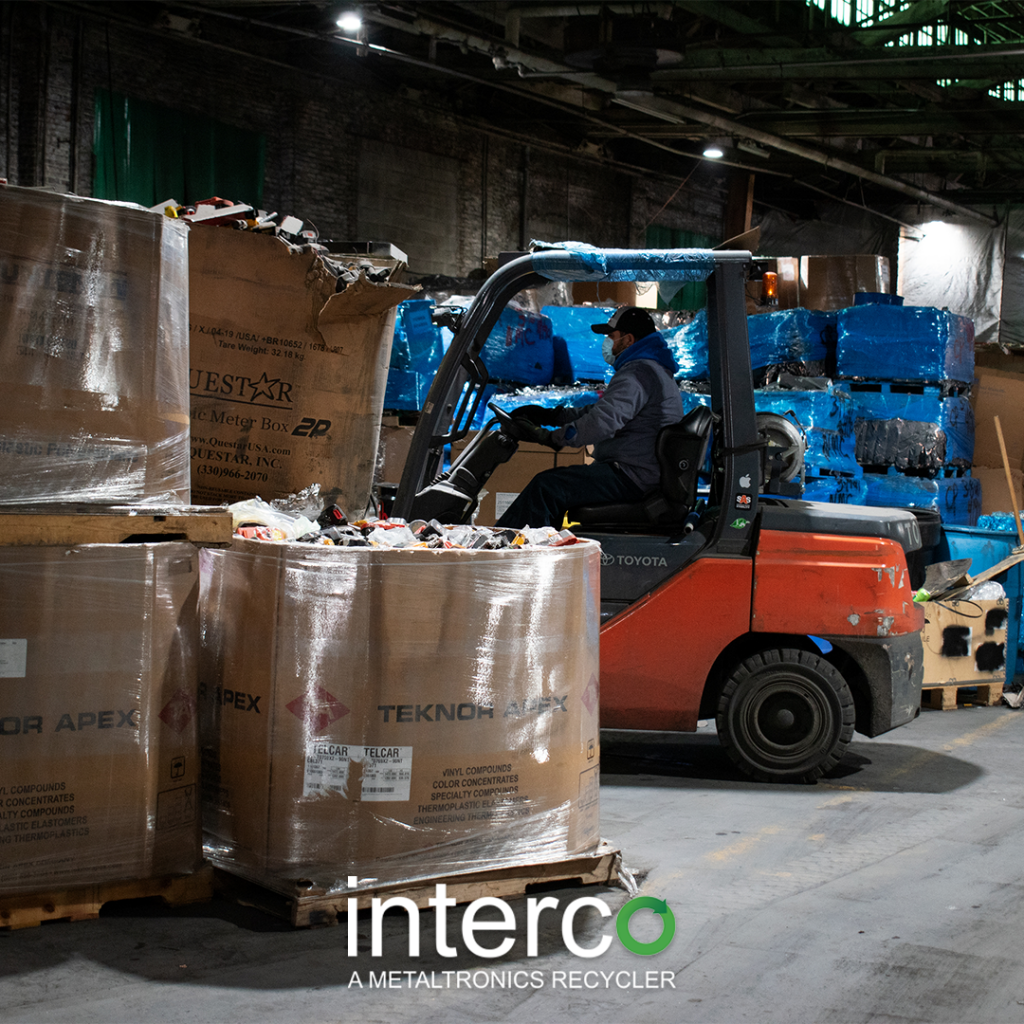Recycle Lithium-Ion Batteries

Recycle Lithium-Ion Batteries
Lithium-ion batteries are everywhere. For most consumer electronics, the battery shelf life for a lithium-ion battery can be between 2 and 4 years. Consumers and companies often consider when to recycle lithium-ion batteries once the scrap piles up.
People can sell lithium-ion batteries for recycling purposes due to the materials’ composition and use.
Lithium-ion batteries are commonly used for portable electronics and electric vehicles. As the popularity of electric vehicles starts to grow explosively, so does the pile of spent lithium-ion batteries that once fueled those cars.
Various metals and minerals create a lithium-ion battery. These metals, like other batteries, include:
- Nickel
- Cobalt
- Copper
Battery users often replace their obsolete batteries after aging, overuse, or overcharging occurs. Once this occurs, the process to recycle lithium-ion batteries becomes apparent.

The Value of Lithium-Ion Batteries
Lithium-ion batteries contain rich minerals and valuable metals that allow for further manufacturing of batteries if recycled. These valuable metals and other materials can be recovered, processed, and reused.
Battery recycling is a delicate process. If current trends for processing these spent batteries hold, most of those batteries may end up in landfills. Consequently, the process to recycle lithium-ion batteries is obvious.
As the battery casing corrodes, chemicals leach into the soil and make their way into our water supply. Lithium can cause landfill fires that can burn underground for years, according to Battery University. This releases toxic chemicals into the air, which increases the potential for human exposure. Furthermore, the recycling process of lithium-ion batteries converts almost everything back into usable raw material.
Lithium-ion batteries are costly to manufacture and this is in part due to the high material cost and complex preparation processes. Thus, obsolete, or expired lithium-ion batteries can have a positive impact on the economy and environment when transported to a recycling center.
In fact, an increase in recycling means less mining of virgin material and less of the associated environmental harm.
Moreover, these batteries contain a flammable electrolyte that can result in fire or even explosions if they are punctured, damaged, or heated. The high-energy content and active nature of lithium-ion batteries make it dangerous to dispose of them in regular waste, instead, they should be offered for recycling.
It is especially important to consider a reputable recycler when considering how to recycle lithium-ion batteries. Any rechargeable battery, including lithium batteries, can enter a recycling process but it is best to find a recycler that performs the cycle safely.

Lithium-Ion Battery Recycling Process
Recycling centers buy or sell scrap lithium-ion batteries with the goal of extracting the valuable metals from the battery. Before retrieving the metals, recyclers follow a recycling process.
- Prior to the recycling process, companies need to deactivate the batteries.
- Lithium-ion batteries are put in a specialized room that is oxygen-free.
- Hydrometallurgy is the process of extracting metals from ores.
- Next, the leaching process refers to the process of using aqueous solutions to extract metal from other metal-bearing materials.
- The battery components are separated into three different items. These items may include cobalt, steel, aluminum, copper, plastic.
- As a result, these valuable metals are retrieved, and companies sell them.
When thrown in the company trash, batteries end up in landfills. As a result, Interco performs the recycling process for lithium-ion batteries carefully on a facility comprised of five buildings — approximately 400,000 square feet total — on more than 35 acres.
Interco, as an ISO 9001 Quality Management System certified company, continues an international-accepted uniform quality system, supplies the highest levels of customer service, and manages its material in the highest regard.
All material will be recycled by approved ISO 14001 Environmental Management and ISO 45001 Occupational Health and Safety best practices. As a result, Interco confirms the exact weights and records upon receipt, and we issue a written certificate of recycling.
Interco Recycles Lithium-Ion Batteries
Overall, Interco will recycle lithium-ion batteries for reuse purposes. Recycling enables the recovery of valuable metals and reduces the harmful effects on the environment that improper disposal causes. Additionally, the team at Interco accepts, processes, trades, and recycles an array of nonferrous metals. Interco recycles batteries of all shapes, sizes, and chemistry. Thus, the team at Interco continues to lead the way in terms of innovative industrial recycling solutions. Consequently, to discover more about how to recycle lithium-ion batteries, click here.